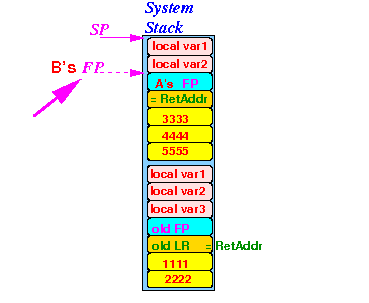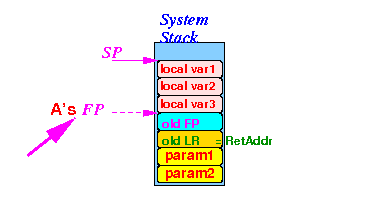How the program stack avoids
overwriting parameters and local variables
Properties of the stack:
|
How the program stack avoids overwriting parameters and local variables
Example: suppose that main( ) calls A( ) and then A( ) calls B( ):
|
How the program stack avoids overwriting parameters and local variables
Example: suppose that main( ) calls A( ) and then A( ) calls B( ):
|
How the program stack avoids overwriting parameters and local variables
Conclusion:
|

DEMO: /home/cs255001/demo/asm/8-sub/prelude.s
